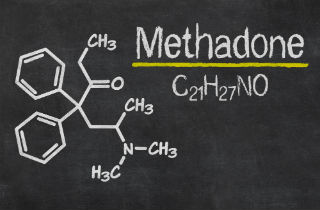Methadone hydrochloride research
More research has been done on methadone than most other prescription medications. Many studies, ever since Dole and Nyswander’s groundbreaking study of 1966, have conclusively shown the benefits of methadone for the treatment of opioid addiction. It works for any type of opioid addiction, both heroin and pain pills.
“Evidence-based” is a frequently used phrase in medicine today. It means that a certain treatment is backed by quality studies that prove its effectiveness. Treatment of opioid addiction with methadone is one of the most heavily evidence-based treatments we have in medicine today. Study after study has shown multiple benefits: reduced transmission of HIV, reduced rate of crime, and reduced death rates. We’ll review these benefits of the drug methadone here.
1. Opioid treatment programs using methadone reduces HIV transmission
Methadone treatment reduces the transmission of HIV. Fortunately, this disease now is viewed as a chronic disease, rather than a death sentence, since the newer highly active HIV drugs have been available. Unfortunately, thirty percent of new diagnoses of HIV are related to injection drug use. A review of all studies of HIV transmission among methadone maintained patients versus untreated opioid addicts showed that treatment with methadone significantly reduced behaviors leading to increased HIV risk. In one study of HIV negative intravenous heroin users followed over eighteen months, 22% of untreated addicts converted to HIV positive. But only 3.5% of patients converted to HIV positive who were on methadone maintenance for the entire eighteen months.
2. Opioid treatment program using methadone reduce crime
Multiple studies have shown that opioid addicts on methadone maintenance significantly reduce their criminal activity. Both drug dealing and predatory crimes, which are usually committed to pay for their drugs, are reduced by as much as ninety-four percent. Most studies show an increase in rates of employment for patients on methadone, compared to similar addicts not in treatment. Even people with no concern for suffering addicts should be willing to endorse methadone maintenance, if for no other reason than to reduce the risk of getting mugged!
3. Opioid therapy using methadone reduces death rate of heroin addicts
Methadone treatment reduces mortality. Patients on waiting lists for methadone clinics have a death rate three times higher than patients in treatment on methadone. Many people would say this is reason enough to support methadone clinics. What other treatments in medicine can boast of such a reduction in mortality? Another study showed a mortality rate of 1.6% per year for addicts on continuous methadone maintenance, as opposed to a mortality rate of 8.1% per year for addicts who left treatment.
However, in the first two weeks of methadone treatment, patients may have an increased risk of death from methadone overdose, underlining the need for caution with initial doses.
Methadone treatment purpose discussion
Clearly, the drug methadone has significant benefits and outcomes for opiate addicts. Given the positive outcomes of methadone treatment for opiate addiction, some may consider the reductions in negative behaviors and consequences reason enough for methadone clinics to exist. But what should the purpose of methadone treatment be? And are methadone effects too difficult for former heroin addicts considering this type of opiate addiction treatment? Comment here.









Related Posts